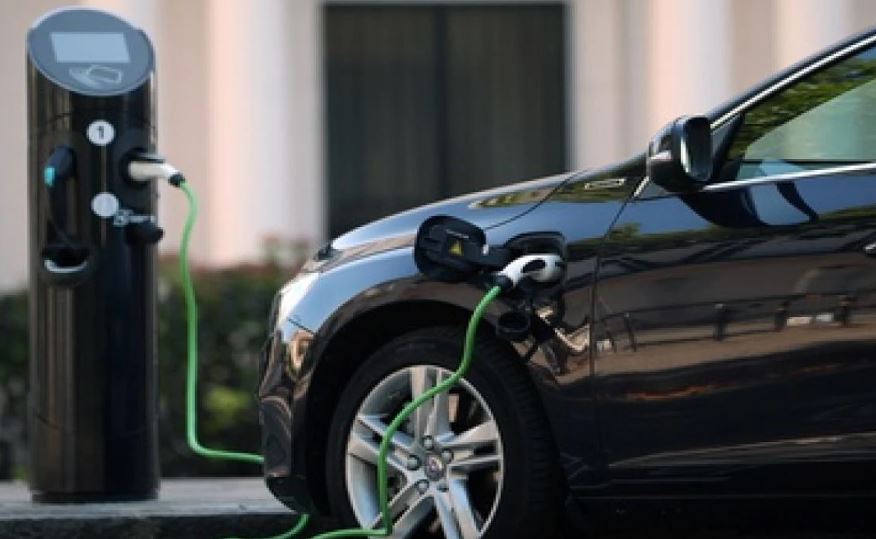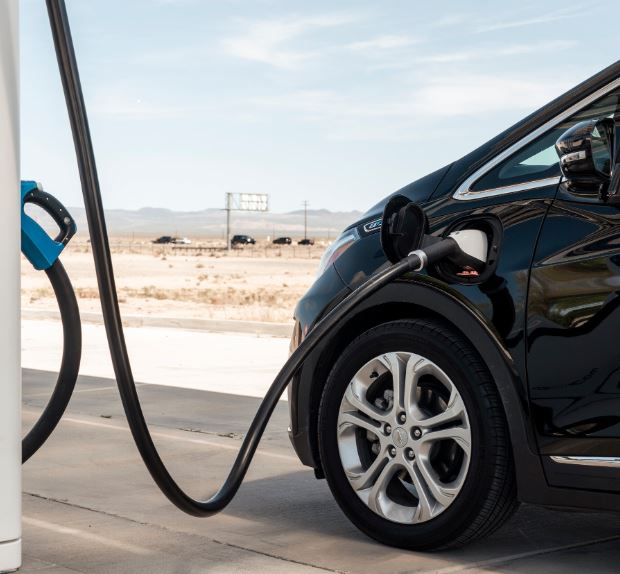In this article, we will discuss Driving in the Sun, A Cost Analysis of Gas and Electric Cars. You are now travelling to work in a vehicle fueled (at least in part) by the Sun, independent of fossil fuels and the business and environmental stigma linked to them. Driving an electric automobile charged by solar panels on your roof sounds like the life of luxury. But how are the economics of using rooftop solar PV to charge your electric vehicle (EV)?

Is it more cost-effective than the alternatives? In this article, we’ll break it down by first going over the financial implications of solar PV and then talking about the economics of solar + EVs against conventional gas-powered cars.
Driving in the Sun, A Cost Analysis of Gas and Electric Cars
Table of Contents
What a Solar PV System Costs
The primary disadvantage of solar energy is the high initial cost; if you were to pay cash, a 5-kilowatt system would cost you about $20,000 and would provide more than enough energy for the typical American home. The solar subsidies and refunds haven’t yet been included in, though. Taxpayers who buy solar systems are able to claim a 30% tax credit on the cost of their system under the Consolidated Appropriations Act.
Under the assumption that you are eligible for the credit, the upfront cost is effectively reduced to $14,000. Notwithstanding the fact that there are various ways to finance a solar system, let’s assume that you choose to pay for yours in full up front. Your system will start generating free, clean electricity as soon as it is installed and continue to do so for the rest of its useful life.
Electric Vehicles

Let’s now discuss vehicles, specifically EVs. During the past several years, electric and hybrid vehicles have become more and more popular, thanks in large part to businesses like Tesla, as well as more inexpensive EVs and hybrids like the Nissan Leaf and Chevy Volt, as well as significant federal and state tax incentives and rebates. Are EVs, however, ultimately more cost-effective than conventional gas-powered vehicles? Let’s compare the prices of a typical electric automobile to those of a typical internal combustion engine-powered car to test this hypothesis. As our test EV, we’ll use a 2016 Nissan Leaf. We’ll contrast the Leaf with a 2016 Honda Accord.
Here, we may contrast the overall costs of an electric vehicle (EV) like the Nissan Leaf with a conventional car with a comparable price, such the Honda Accord. Let’s first try the estimate for a hypothetical homeowner in Southern California without solar. In this illustration, the homeowner commutes 15,000 miles annually, or about 41 miles each day, from his home in Pasadena, California. In addition, they pay $150 monthly for power (above average for a California household). The MSRP of a Honda Accord is slightly over $22,000. The original price of a Nissan Leaf is $29,000, but federal, state, and local tax credits and rebates* reduce the price to $19,000 (a $10,000 saving). This results in a comparable sticker price for these two cars, with the Leaf’s first outlay being $3,000 less than the Accord’s.
| HONDA ACCORD | NISSAN LEAF | |
|---|---|---|
| Yearly Mileage | 15,000 | 15,000 |
| Fuel Cost/Mile | $0.09/mile | $0.05/mile |
| Annual Fuel Cost | $1,300 | $780 |
| Vehicle Maintenance | $870 | $710 |
| Annual Electricity Cost | $1,800 | $2,580 |
| Gross Vehicle Cost | $22,300 | $29,000 |
| Federal Incentives | N/A | -$7,500 |
| State Incentives | N/A | -$2,500 |
| Net Upfront Cost | $22,300 | $19,300 |
| Year 1 Savings | N/A | $3,680 |
| Year 10 Savings | N/A | $9,800 |
Overall, owning an EV results in a $65 increase in monthly electricity costs, but the homeowner still saves about $680 annually by not owning a traditional gasoline-powered vehicle. This is in addition to the $3000 savings from the Leaf’s cheaper upfront cost, resulting in a first-year savings of $3680 and breaking even right away.
“Plug in Electric Drive Vehicle Credit,” a federal tax credit that is worth up to $7,500, is available for electric vehicles. California offers a $2,500 rebate for battery-electric vehicles as an EV incentive.
Costs of maintenance based on the intervals of maintenance suggested by the manufacturer.
Case Study: PV and EV Coupling
But adding solar to the mix makes the picture completely complete. Let’s use the same facts as before (homeowner lives in Pasadena, commutes 15,000 miles annually, and pays $215/month for energy), but this time with a solar system that is installed on the homeowner’s roof and completely covers the utility bill. This system has a 10.5 kW power output (well above average-sized).

Although though the Leaf-PV combination initially costs more than the Accord alone, the real savings are realised over time. After the panels are installed, the annual cost of electricity is zero because they completely balance the utility bill. Over the course of ten years, the savings reach more than $32,000:
| HONDA ACCORD, NO SOLAR | NISSAN LEAF WITH SOLAR | |
|---|---|---|
| Gross Cost (EV+PV System) | $22,300 | $61,300 |
| Federal EV Incentives | N/A | -$7,500 |
| State EV Incentives | N/A | -$2,500 |
| Federal Solar Incentives | N/A | -$9,700 |
| Net Cost After Incentives | $22,300 | $41,600 |
| Annual Fuel Cost | $1,300 | N/A |
| Annual Utility Bill | $1,800 | N/A |
| Annual Maintenance | $870 | $710 |
| Total Annual Costs | $3,970 | $710 |
| Total Year 1 Savings | N/A | $3,260 |
| Break Even Period | N/A | 5 Years, 11 Months |
| 10 Year Savings | N/A | $32,600 |
According to our calculation, there will be annual savings of $3,260 and a total of $32,600 over the course of ten years. It should be mentioned that almost all solar panels offer a 25-year performance guarantee.
Conclusion
In conclusion, using rooftop solar to power an electric vehicle is more cost effective than acquiring a gas-powered vehicle. Although the initial fees may be scary to some, these charges are more than offset in a relatively short period of time. Furthermore, when you buy a solar system, the cost of the project is added to the value of your home. There are also numerous low-interest financing alternatives available for solar systems that require no money down. It is not only clean and ecological, but it also makes economical sense to run on sunlight.
Data from the California Solar Initiative WattPlan calculator, the Energy Information Association, the U.S. Department of Energy, and Solar.com’s own solar estimate calculator were all used in the calculations and estimations. Interested in comparing the costs and benefits of driving an EV vs. a regular vehicle on your own? You can determine the benefits of an EV for yourself with the help of SolarPowerNewz.com.